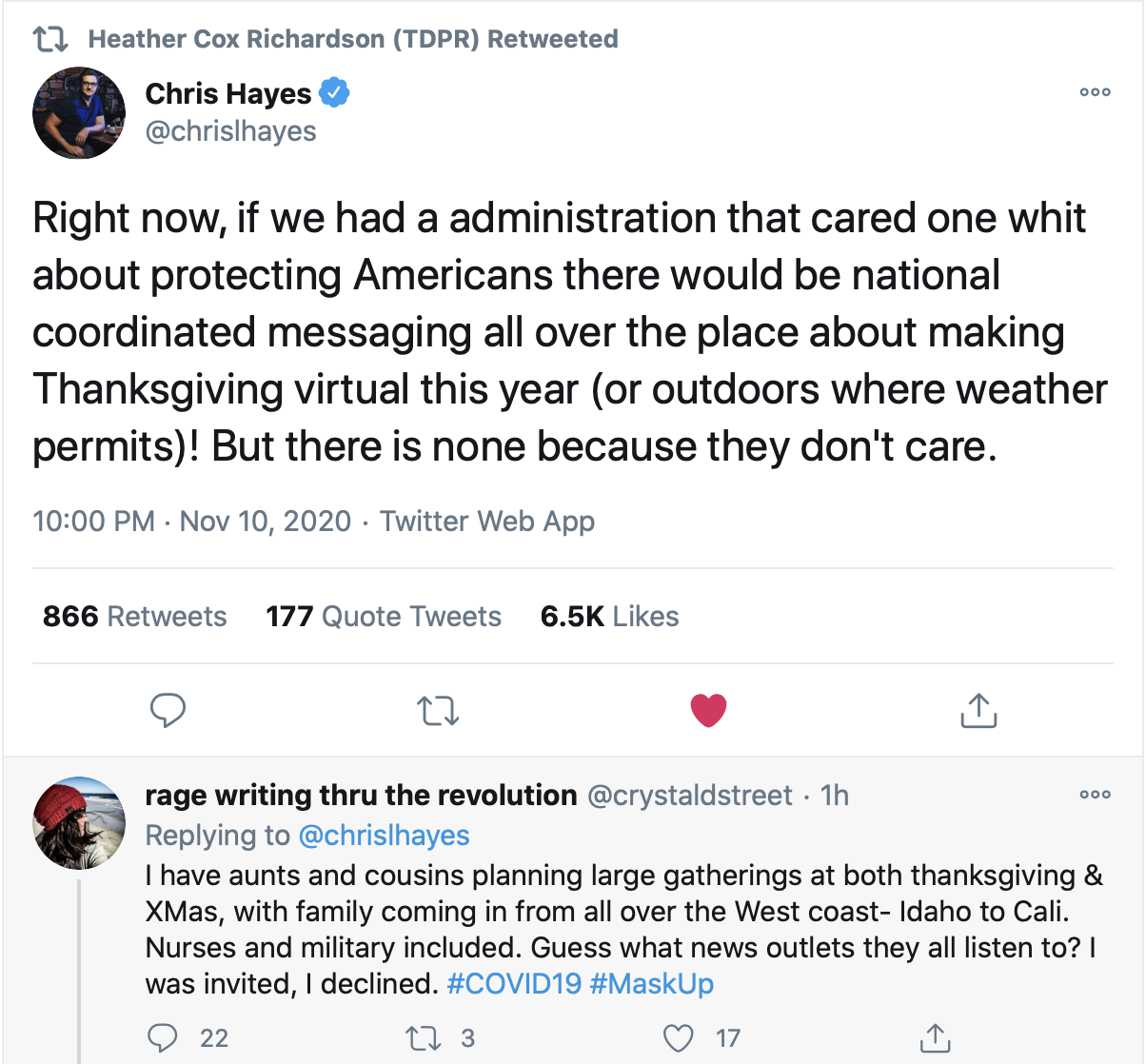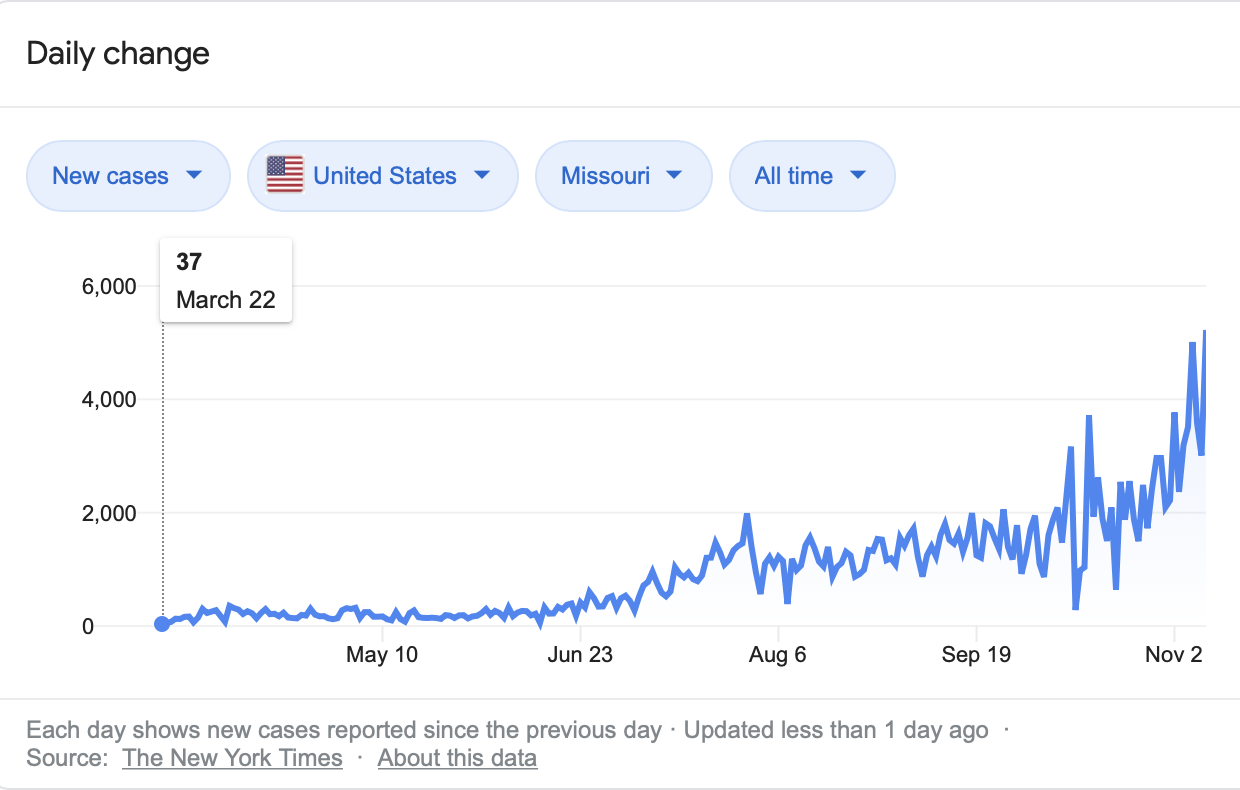Would you Invite a Poisonous Snake to Run Loose at Thanksgiving Gathering?
I will not be attending any indoor holiday gatherings this year. I'll refrain for the same reason that I don't bring poisonous snakes to family gatherings. Imagine that it's one year ago, before COVID was a thing. Assume that your extended family invited you to a big holiday celebration. You mention to your family that you will be bringing your pet poisonous snake and letting it run loose in the house during the celebration. Your family is aghast. You reassure them: My snake is shy. It will probably slither under a couch and stay there the entire time. In fact, there is only a 1% chance that the snake would bite one or more people. There's only a 1% chance that people bitten by the snake would die and only another 5% of people who are bitten would have long-lasting residual physical complications.
What would your family say? How is this risk any different than the risk of COVID other than the dangerous being visible rather than invisible?
I've seen the stats. 38% of Americans plan to attend Thanksgiving gatherings with 10 or more people. I understand that we are intensely social animals and that the social isolation triggering depression and probably killing people. I know that there are still some lingering questions about exactly how contagious and how dangerous COVID is in various environments. That said, I won't be attending any indoor gatherings this holiday season. Instead, I'll be attending two short scaled-down family outdoor gatherings at a distance (it's supposed to be about 50 degrees where I live). I'm not willing to send anyone I love to the hospital in order to eat turkey in a warm room. Not when there are alternatives to visiting indoors, including Zoom. Not when the hospitals are almost filled and health care workers are stretched hard to handle this onslaught.
Have a safe holiday season!


